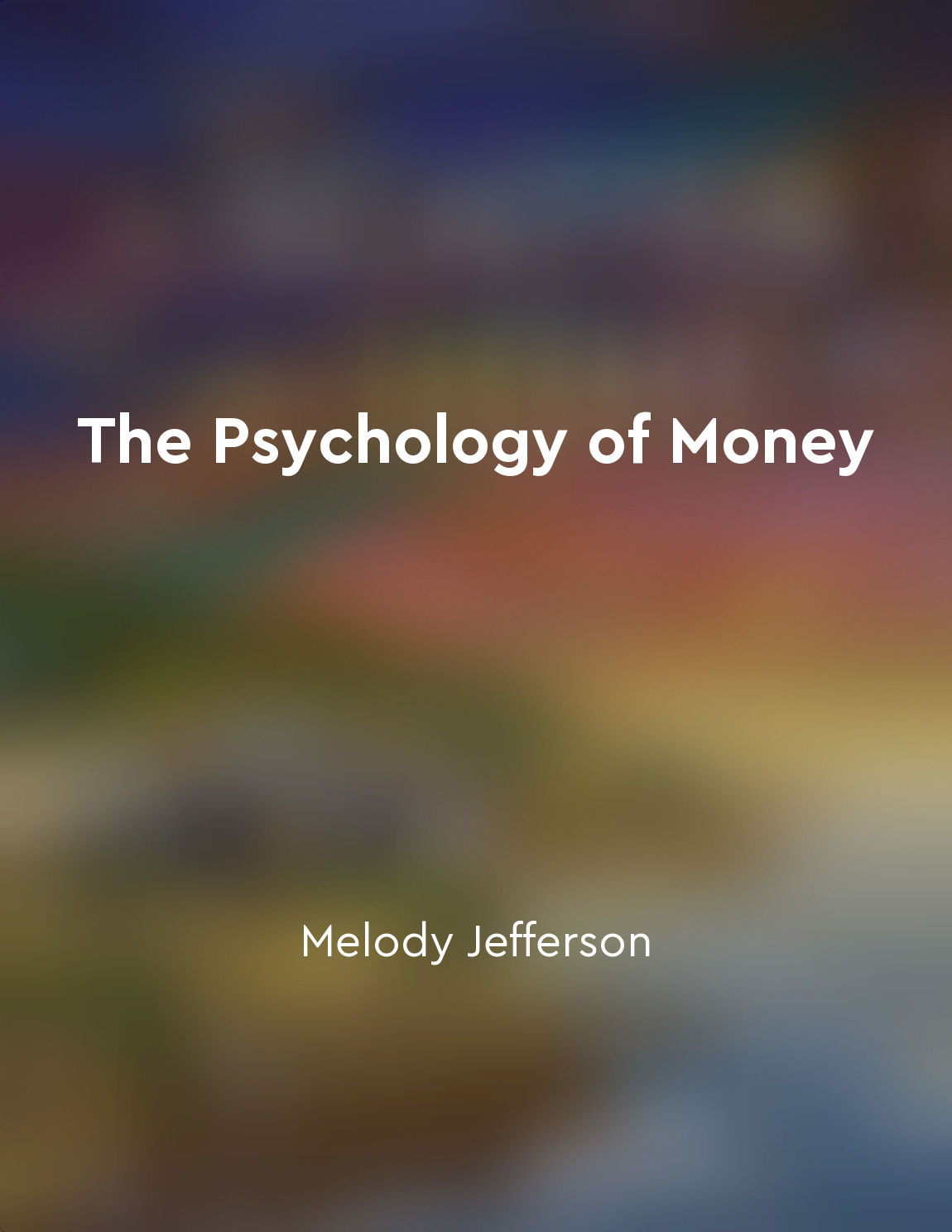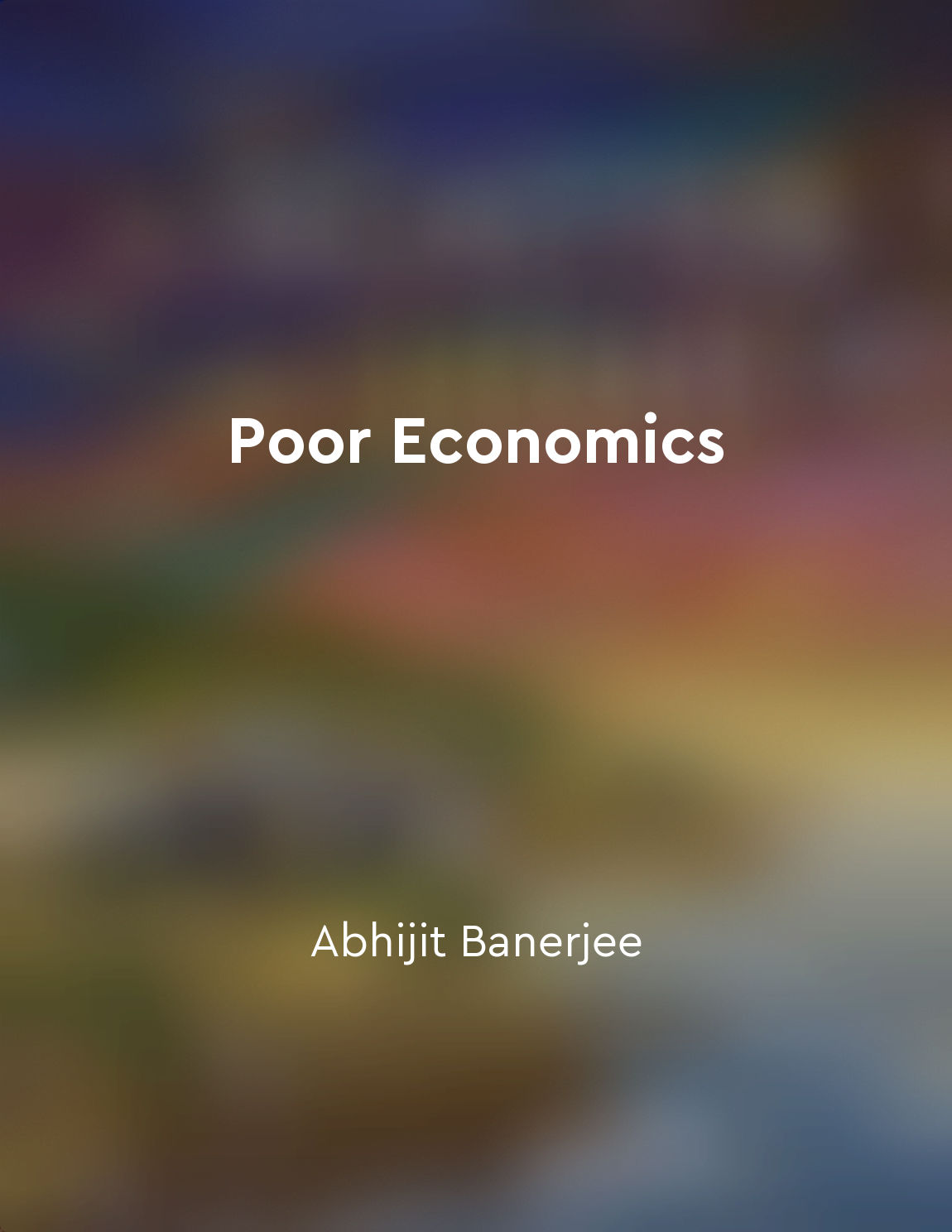Behavioral economics can shed light on the decisionmaking processes of the poor from "summary" of Poor Economics by Abhijit Banerjee,Esther Duflo
Behavioral economics offers a valuable lens through which we can understand the decision-making processes of the poor. By examining how individuals, particularly those living in poverty, make choices in the face of limited resources and challenging circumstances, we gain insights that can inform more effective policies and interventions. One key insight of behavioral economics is that individuals often do not act in purely rational ways, as traditional economic models would suggest. Instead, people's decisions are influenced by a variety of psychological and social factors, such as cognitive biases, social norms, and cultural beliefs. For the poor, these influences can be particularly impactful, shaping their choices in significant ways. For example, behavioral economics helps us understand why individuals living in poverty may choose to spend money on items that seem unnecessary or frivolous to outsiders. By considering factors such as the need for immediate gratification, the desire to maintain social connections, or the impact of scarcity mindset, we can better appreciate the complexity of these decisions. Furthermore, behavioral economics highlights the importance of context in shaping decision-making. The poor often face unique challenges, such as unreliable income streams, unpredictable expenses, and limited access to formal financial services. These factors can lead to behaviors that may seem irrational or counterintuitive from an outsider's perspective but make perfect sense when viewed through the lens of behavioral economics.- We can gain a deeper understanding of the factors that influence the decisions of the poor. This understanding, in turn, can inform the design of more effective interventions and policies that take into account the complex realities of poverty. Ultimately, by shedding light on the decision-making processes of the poor, behavioral economics can help us create more targeted and impactful solutions to alleviate poverty and improve the well-being of individuals and communities.
Similar Posts

The role of heuristics in shaping investor behavior
Heuristics play a crucial role in shaping investor behavior. These mental shortcuts are used by individuals to make decisions q...
Remember that true wealth encompasses more than just money
True wealth is not solely defined by the amount of money one possesses. While financial resources are undoubtedly important for...
Combining economics and psychology to improve decisionmaking
The key idea here is that we can use insights from psychology to improve economic decision making. Traditional economics assume...
Interest rates play a significant role in the economy
Interest rates are not just numbers on paper – they have a profound impact on the economy as a whole. When interest rates are l...
Sleep deprivation can impair our cognitive abilities
Sleep deprivation can impair our cognitive abilities, affecting our decision-making, problem-solving, and memory. When we are s...

A high income does not guarantee financial security
It's a common belief that a high income automatically leads to financial security. After all, more money means more resources, ...
Money is an emotional subject
Money is a topic that elicits a wide range of emotions from people. It can cause feelings of anxiety, fear, excitement, pride, ...

Building multiple streams of income can increase financial stability
One of the key strategies for achieving financial stability is to have multiple streams of income. Relying on a single source o...
Developing a longterm financial mindset
To truly understand the concept of developing a long-term financial mindset, one must first recognize the importance of thinkin...
Regret aversion can prevent investors from making necessary changes to their portfolios
Regret aversion is a powerful force that can hold investors back from making vital changes to their portfolios. This phenomenon...


